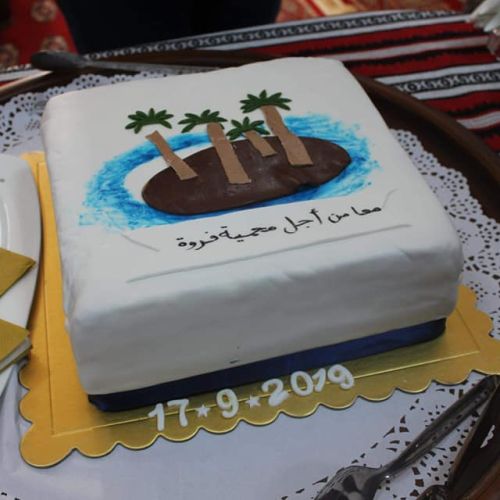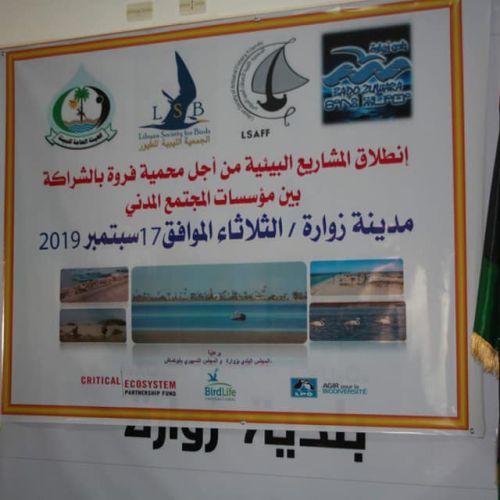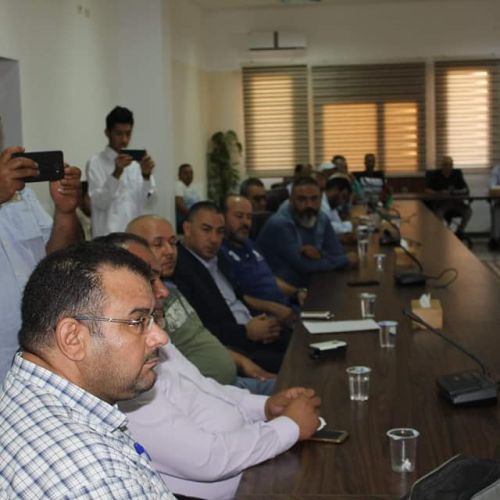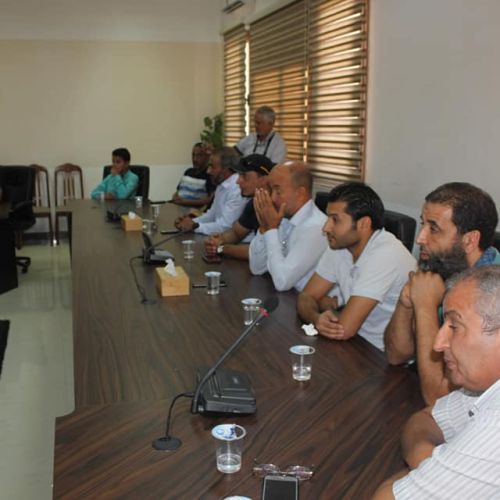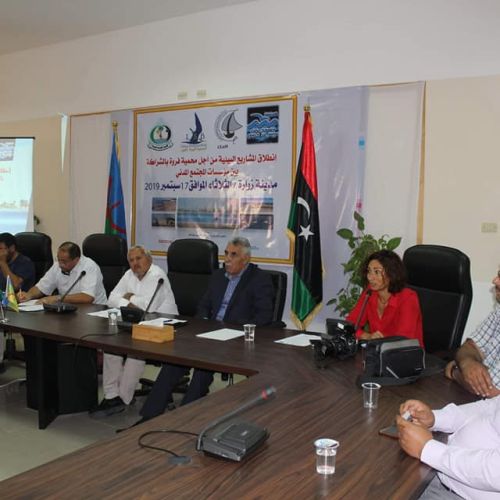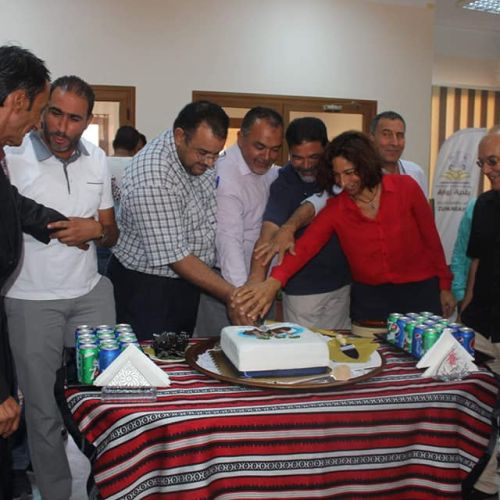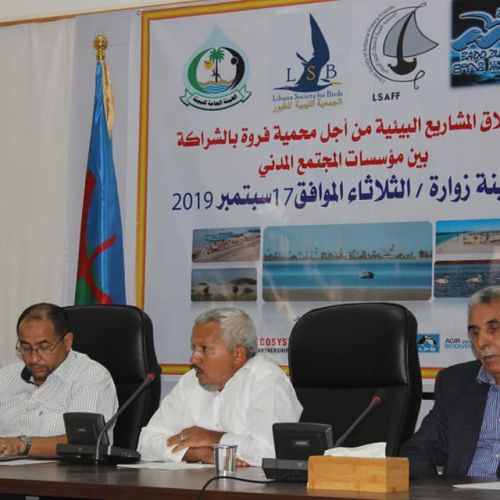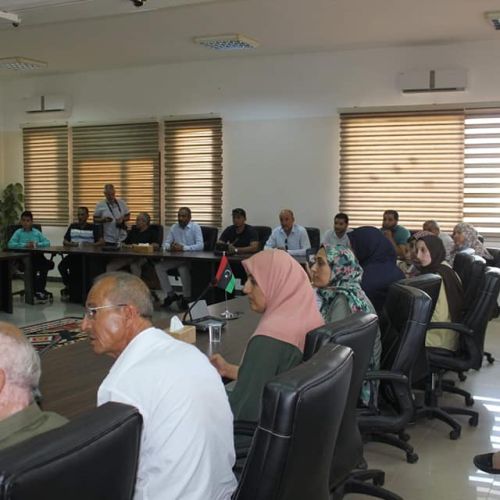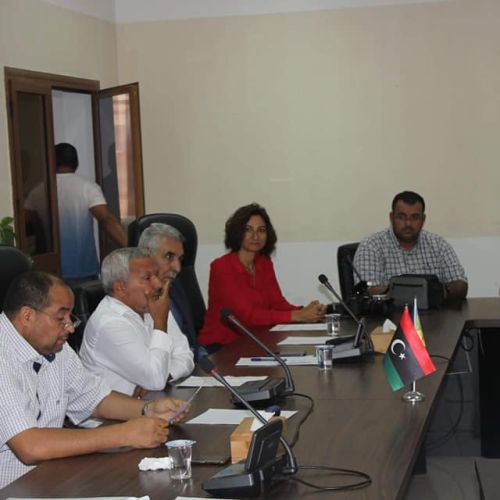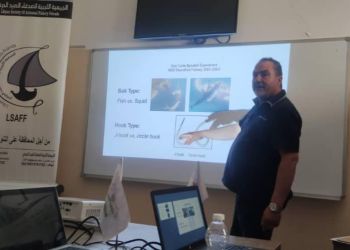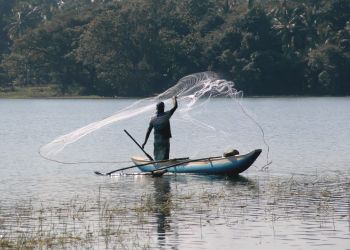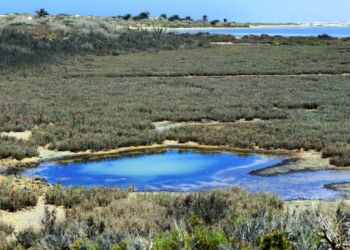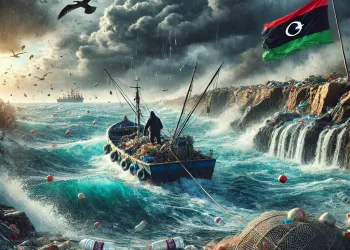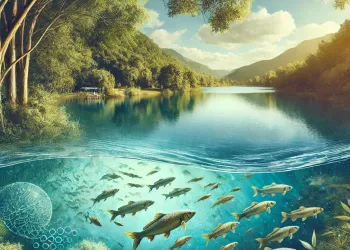Project
Sustainable Fishing in Farwa Lake
Start Date Time :September 17, 2019
End Date Time : May 17, 2022
This project aims to balance marine environmental conservation with improving the livelihoods of fishermen in Farwa Lake. It includes a comprehensive program supported by the Critical Ecosystem Partnership Fund (CEPF).
Project Promotion:
- Social media platforms were utilized for promotion.
- The project’s launch event included media coverage and invitations extended to all stakeholders and officials from areas surrounding Farwa Island.
International Partnerships:
- Collaboration with international organizations specializing in marine environmental protection.
Impact on the Local Economy:
- Improved fishermen’s income through sustainable fishing practices.
Challenges and Lessons Learned
Key Challenges
- Resistance to change by some fishermen.
- Climate changes affecting the marine environment.
- Illegal fishing.
How to Address the Challenges
- Organizing intensive awareness workshops.
- Collaborating with relevant government entities.
- Implementing a monitoring and surveillance system for fishing.
Lessons Learned
- The importance of community participation in managing natural resources.
- The necessity of collaboration between various stakeholders.
- The significance of scientific research in supporting decisions related to environmental management.
Main Objectives:
- Preserve marine biodiversity in Farwa Lagoon.
- Improve traditional fishing practices to ensure the sustainability of fish stocks.
- Raise environmental awareness among fishermen and the local community about the importance of environmental conservation.
Funding Sources: Critical Ecosystem Partnership Fund (CEPF)
Financial Challenges:
- Lack of funding during certain stages.
- The long distance between the team’s residence and the project location
Key Results:
- Development of a sustainable fishing management plan for the lagoon.
- Training fishermen on the use of environmentally friendly fishing tools.
- Establishment of small marine protected areas within the lagoon.
Recommendations from Workshops
Address Cross-Border Violations
- Implement measures to stop current breaches at the borders between Tunisia and Libya, including the intrusion of foreign ships. These violations undermine efforts by local fishermen to maintain sustainable practices and ecological stability.
- Ensure proper monitoring and enforcement by the relevant authorities to address these ongoing issues.
Activate and Enforce Maritime Laws:
-
- Urge the Ministry of Marine Resources to activate maritime laws and ensure their implementation by responsible entities.
Establish a Marine Rescue Center:
- Create a rescue center to facilitate marine rescue operations, equipped with tools and accessible communication channels.
Support Fishermen with Modern Technologies
- Provide fishermen with advanced rescue tools and communication devices, as their current equipment is basic and insufficient.
- Equip the Coast Guard and other related entities with appropriate resources for marine rescue operations.
Promote Collaboration
- Foster cooperation between fishermen, experts, and rescue centers to ensure better environmental and marine protection.
Training Programs
- Organize domestic and international training sessions for fishermen, focusing on rescue operations and modern technologies.
Regulate and Organize Fishing
- Encourage fishermen to self-regulate and organize their practices, emphasizing the importance of increased awareness among them.
Rehabilitate Old Fish Farm
- Reactivate and utilize old fish farms within the reserve. These can serve as alternative sources of income for fishermen during biological rest periods.
Team Members
Dr. Ismail Shuqman
Mohammed Al-Hajjaji
Mohammed Al-Shuwaidi
Sara Bin Zoghlam
Niroz Beik (Benghazi)
Aisha Saif Al-Nasr
Malak Al-Turooq
Tangible Outputs:
- Scientific reports on the state of the lagoon and its fish resources.
- Effective engagement with fishermen by addressing them in simple, accessible language.
- Many fishermen became convinced of the dangers of illegal fishing methods, with some unaware of these risks in both the short and long term.
- Workshops were conducted in an unconventional way, leading to significant interaction and understanding of what was required from the fishermen. These sessions were designed in simple terms that everyone could comprehend.
- A practical guide for fishermen on environmentally friendly practices.
Results Evaluation:
- Results were assessed through surveys conducted with fishermen, comparison of data before and after project implementation, and monitoring of biodiversity.
Overall Evaluation:
- The project achieved significant success in raising environmental awareness and improving fishing practices.
Future Plans:
- Expand the project to include other regions.
- Develop sustainable products from marine resources.
Project Photos
